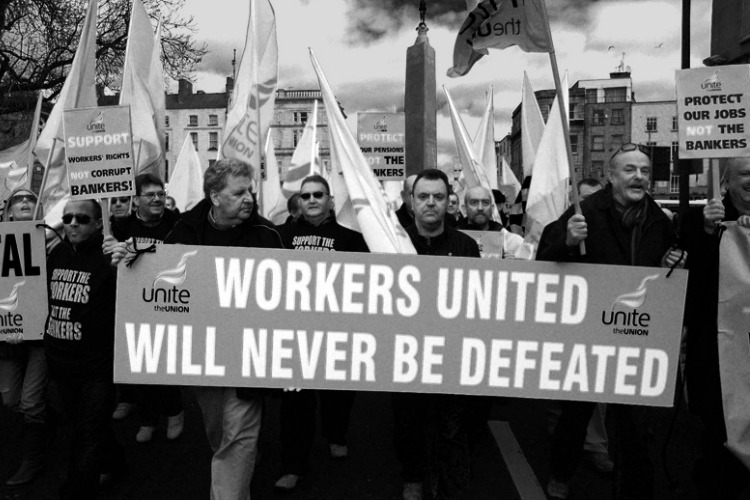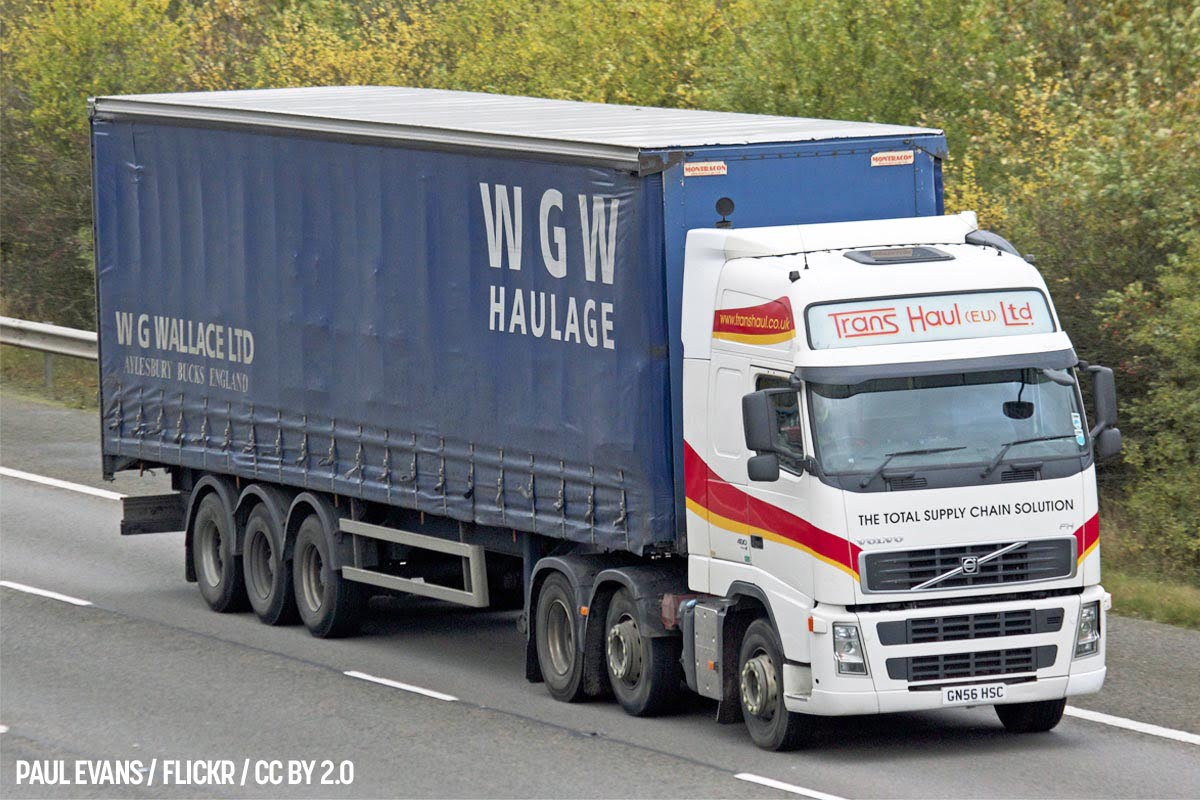Lorry drivers are threatening to take unofficial strike action against low pay and terrible working conditions. The labour movement must support this struggle, and demand public ownership to invest in the sector, as part of a socialist plan.
A shortage of lorry drivers has consistently plagued the UK haulage industry for years. But now the problem is being exacerbated by the impacts of Brexit, which are increasingly beginning to bite for British businesses. Almost 15,000 European drivers are no longer available.
This has been compounded by delays at testing centres, meaning that new drivers are unable to gain the necessary qualifications. Throughout the pandemic, 28,000 HGV driver tests have been cancelled due to lockdown restrictions.
As a result of these factors, the Road Haulage Association (RHA) estimates that Britain is short of 100,000 drivers.
Coupled with rising COVID cases, which have forced many drivers to self-isolate, the situation in haulage has gone from bad to worse. This has had a major impact on supply chains, with empty shelves an increasingly common site in supermarkets.
So what is the Tory government’s solution to these problems? Worsen already-dreadful working conditions even further!
Lasting until October, the government has increased the number of hours that drivers are legally allowed to be on the road for. Not only will this short-termist measure put safety at risk, but it will also exacerbate the problem of drivers leaving the industry for good.
Should the situation worsen, the government is rumoured to be considering enlisting the army to drive lorries.
And although much has been made of various firms putting up pay or offering signing-on bonuses, for many drivers the pay is still not worth the poor working conditions. Things are heading towards a crunch point.
Grassroots organising
As with many other sectors, for years conditions and pay in haulage have been eroded. But these latest developments could now be the straw that breaks the camel’s back.
Using a Facebook group to organise, with thousands joining, lorry drivers are planning a one-day ‘stay at home’ action – i.e. an unofficial strike – for 23 August.
The group’s description makes clear that drivers are sick of the ruthless exploitation and dreadful conditions that are widespread in the sector:
“Low wages, long hours, general disrespect and disregard to needs of drivers, including denied access to toilet facilities etc., no family or social life, more and more rules and expectations, increased responsibility and finally – massive exploitation. All this with wages going down, not up.”
89% of all goods transported by land in Britain are moved directly by road. As the group description highlights, these drivers are: “The backbone of the economy. The spine and the blood. Without transport, any country would be on its knees within a few days.”
Indeed both the government and the bosses recognise this, and have begged drivers not to take action.
Herein we see the strength that workers have, when organised and mobilised. Ultimately, not a wheel turns without the permission of the working class.
By taking action and withdrawing their labour, drivers can show who really holds the power in society: not the bosses or the government, but organised workers.
In particular, lessons should be drawn from the recent fight against deskilling in the construction sector. Through taking militant direct action, including protests outside company headquarters, these electrical workers not only won against the bosses, but also forced the hand of union officials to back them.
Already feeling the pressure from below, Unite’s national officer for road transport, Adrian Jones, has stated that:
“Extending the relaxation of minimum lorry driving hours until October is frankly dangerous…We will continue advising our members not to put themselves in danger and to exercise their legal right to refuse to drive if they are too tired. The union will fully support those who make that decision, legally and industrially.”
Workers’ control
 The unofficial strike planned for 23 August, organised from below, is certainly welcome. It is through mobilisations and struggles such as these that workers can get organised, gain in confidence, and realise their strength.
The unofficial strike planned for 23 August, organised from below, is certainly welcome. It is through mobilisations and struggles such as these that workers can get organised, gain in confidence, and realise their strength.
Unite and other trade unions in the sector must also step up and play a role. The union leaders should urgently take up the demands of the drivers and support any industrial action they choose to take – official or not.
More broadly, the labour movement must fight for public ownership over the haulage sector, demanding a unified logistics network as part of a socialist plan of production and distribution.
This must be without any compensation to the millionaire bosses, who have enriched themselves by forcing drivers to work for long hours on low pay.
Only by putting workers in control can drivers be provided with decent wages and safe conditions.
And only by eliminating profit, and instead planning the economy along socialist lines, can the necessary improvements and investments be made, in order to ensure that the country’s transport and distribution system runs smoothly – in the interests of society, not the bosses.






